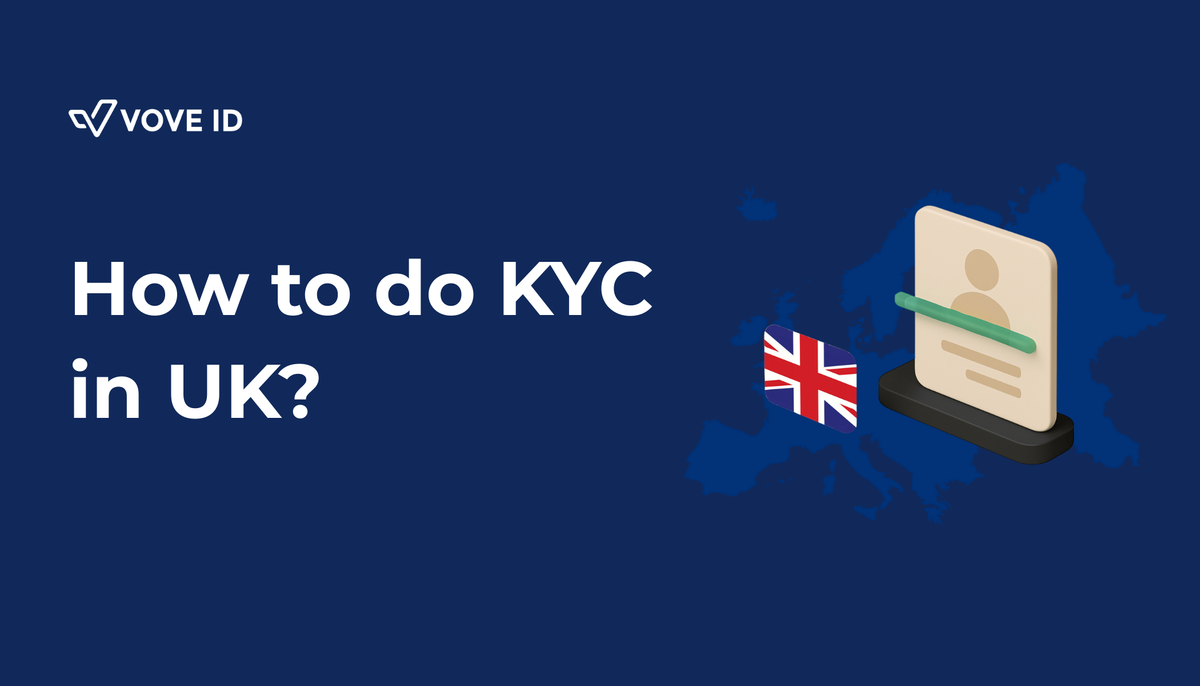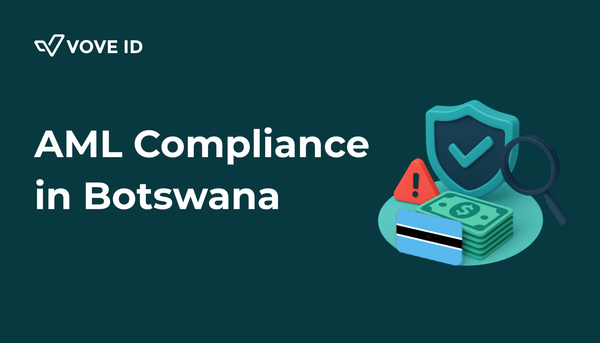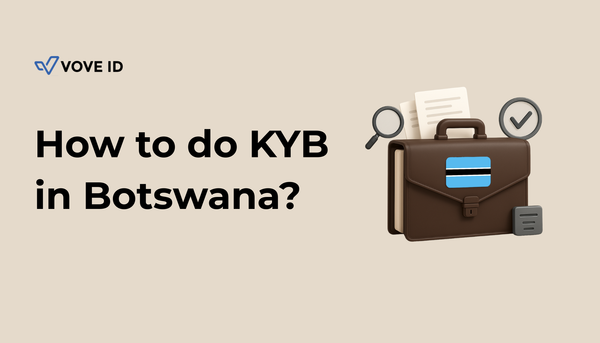KYC in the UK: A Simple Guide to Compliance
Master UK KYC requirements with this guide to MLR 2017, customer due diligence (CDD), and digital verification. Achieve FCA-compliant KYC with VOVE ID’s solutions.

Navigating KYC in the UK’s Financial Landscape
The UK’s financial hub status comes with stringent rules to keep it secure. Know Your Customer (KYC) is central to this, enabling businesses to verify customers, curb fraud, and meet anti-money laundering (AML) standards. Whether you’re a fintech startup or a seasoned firm, mastering KYC is essential to operate confidently in the UK. This guide covers the essentials, from requirements to practical tips for financial crime compliance in the UK.
What Is KYC and Why Is It Required?
KYC involves verifying a customer’s identity to confirm they are legitimate. In the UK, KYC is mandated under the Money Laundering, Terrorist Financing and Transfer of Funds Regulations 2017 (MLR 2017), as outlined by HM Treasury and enforced by the Financial Conduct Authority (FCA). These regulations aim to block financial crimes like money laundering and terrorist financing. Businesses use KYC to assess risks and shield their operations from illicit activities.
Failing to comply can result in severe penalties, including fines or reputational harm, as highlighted in the FCA’s financial crime guide. KYC isn’t just a formality—it’s a legal necessity for trust and security.
Who Needs to Comply with KYC in the UK?
If your business is classified as a “relevant person” under MLR 2017, KYC isn’t optional—it’s a legal requirement. A “relevant person” includes entities handling financial transactions or high-value deals, such as:
- Banks and financial institutions
- Payment service providers
- Crypto exchanges
- Law firms and estate agents
- Gambling operators
- High-value goods dealers (e.g., art or luxury car sellers)
These businesses must perform customer due diligence (CDD) on clients before starting relationships or processing significant transactions, per gov.uk AML guidance.
Key KYC Requirements in the UK
To meet UK standards, businesses must follow these core KYC steps:
- Customer Identification: Gather details like name, date of birth, address, and nationality. Acceptable documents include passports, driving licenses, or utility bills.
- Verification: Confirm customer details using reliable sources, such as government databases, credit reference agencies, or digital ID verification platforms.
- Risk Assessment: Evaluate customer risk based on factors like transaction size or geographic ties. High-risk cases, such as politically exposed persons (PEPs), require enhanced due diligence (EDD), a critical layer in the UK’s risk-based approach to KYC and customer due diligence (CDD), as per FCA guidelines.
- Ongoing Monitoring: Track customer activity to spot red flags, such as unusual transaction patterns.
- Record-Keeping: Store customer data and due diligence records for at least five years, as required by MLR 2017.
Businesses are also encouraged to follow guidance from the Joint Money Laundering Steering Group (JMLSG), which outlines how to apply KYC and AML regulations in practice. The UK further supports digital identity verification, with initiatives like eVisas and biometric checks gaining traction, aligning with the government’s push for secure, seamless financial access.
Challenges of KYC Compliance
While essential, KYC also comes with a few pain points for businesses to navigate:
- Regulatory Complexity: Staying current with AML and FCA rules can overwhelm businesses.
- Customer Friction: Slow verification processes may drive users away.
- Cost: Manual KYC checks are resource-intensive, especially for smaller firms.
- Data Privacy: Compliance must align with GDPR to protect customer data.
Fortunately, automated KYC solutions offer a practical way to overcome these challenges—striking the right balance between efficiency, accuracy, and customer experience.
Streamlining KYC Compliance in the UK: Best Practices
To make KYC smoother, consider these practical steps:
- Adopt Technology: Digital KYC platforms, including eKYC tools, automate identity checks and minimize errors.
- Train Staff: Equip employees to understand KYC rules and identify risks.
- Enhance User Experience: Choose verification tools that are fast yet secure.
- Stay Informed: Keep up with FCA and MLR 2017 updates to close compliance gaps. With the 2023 Economic Crime and Corporate Transparency Act, the UK is tightening corporate transparency. Companies House will play a larger role in verifying information, and firms may need to adapt their KYC processes to align with incoming reforms.
Partnering with a provider like VOVE ID can streamline the process with tailored, secure KYC solutions for the UK market.
Case Study: SwiftPay’s Success
London-based fintech SwiftPay cut onboarding time by 40% using VOVE ID’s automated KYC platform. By integrating digital ID checks and real-time risk assessments, they boosted compliance and customer satisfaction.
KYC Compliance Checklist for UK Businesses in 2025
- ✔️ Collect and verify customer ID documents
- ✔️ Perform risk assessments for all clients
- ✔️ Apply EDD for high-risk customers like PEPs
- ✔️ Monitor transactions for suspicious activity
- ✔️ Securely store customer records for at least five years
- ✔️ Use FCA-compliant digital KYC tools
Wrapping Up
KYC in the UK is a vital shield against financial crime and a foundation for customer trust. By embracing digital tools and a risk-based approach to KYC, businesses can comply efficiently while keeping users happy. Ready to simplify your KYC process? Get in touch with VOVE ID at our contact page and discover how easy compliance can be!




